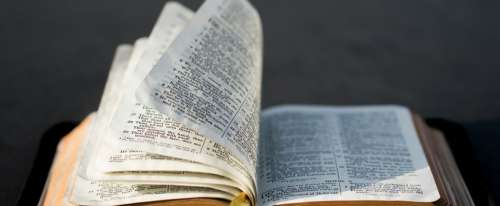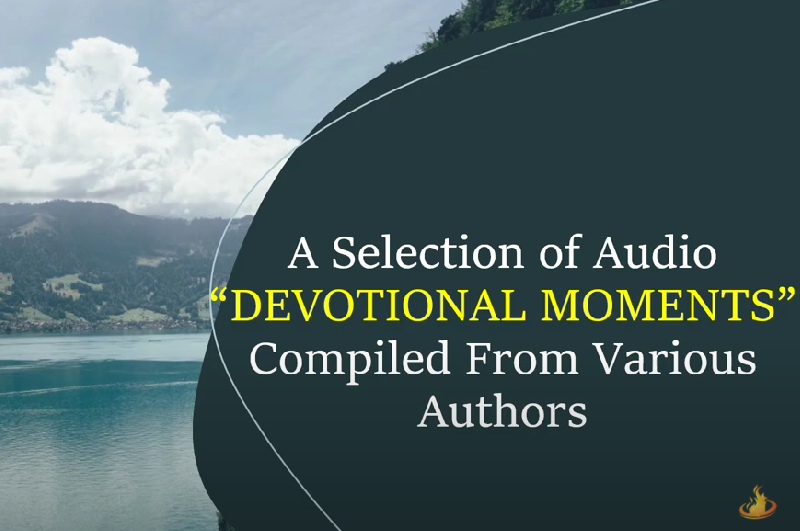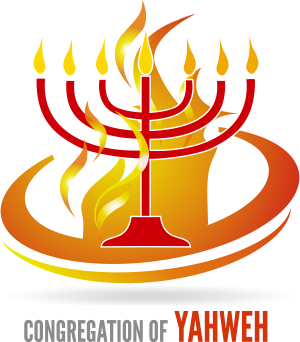The Day of Atonement - a day of repentance and renewal; a day of sorrow and joy; a day of forgiveness and hope. Read about the fullness of this day and experience the richness of blessing.
The Day of Atonement (10th Tishrei) has come to be regarded as the most holy day of the year for Jewish men and women. According to Jewish tradition, books are opened in heaven on this day, books in which are recorded the acts – good or bad – of every person. Judgement is passed according to this account. So the period between the Memorial of Blowing of Trumpets and the Day of Atonement has come to be known as the “Ten Days of Repentance”. It is a very critical time of rigorous heart-searching, and of putting right the wrongs done to father, mother, brother, sister, uncle, auntie, friend, neighbour, and even the man in the street – in fact, anyone who had been wronged throughout the year - not forgetting Yahweh, of course. It is essential that no stone is left unturned, no small misdemeanour goes uncorrected, no absent-minded word is unaccounted for, because the coming year depends entirely on the outcome of the Day of Atonement.
Our understanding of the Day of Atonement, though not rooted in Jewish tradition, is, nevertheless, based on the same principles of repentance, forgiveness and atonement.
The Day of Atonement has always been a solemn time. It was a day of complete cleansing and purging for ALL Israel, and was planned into the year by a loving Father Who was well aware that the normal sacrifices were not adequate to cover and atone for all the sins of His people. This day of grace and favour gave Israel a fresh start every year. The man of the day was the High Priest; the activities of the day surrounded two identical goats; the outcome of the day depended on Yahweh’s acceptance of the sacrifice; the mood of the day was solemn, “ye shall afflict your souls and do no work at all…” (Lev. 16:29)
On the morning of the Day of Atonement the High Priest took off his ordinary clothes, bathed himself in a specially prepared place and put on holy garments of white linen. (White linen speaks of holiness and righteousness.) When he was quite prepared he offered a bullock as a sin offering for himself and his household. Two specially chosen goats were set before him and lots were cast as to which one would be Yahweh’s goat and which ‘Azazel’. The one chosen to be Yahweh’s would, eventually, be offered as a sin offering, the other would have all Israel’s sins and transgressions confessed over it, before being escorted into the wilderness by the hand of a “fit man”.
Taking a censer of live coals from off the altar of burnt offering and with sweet incense in his hand, the High Priest would then go into the Most Holy place (this being the only time he is permitted to do so). He would pour the incense upon the coals “…that the cloud of incense may cover the mercy seat…” (Lev. 16:13). This act was a prayer of petition that Yahweh would be gracious to His people. After this the High Priest would bring blood from the bullock into the Most Holy place, and sprinkle it both in front of and on the mercy seat seven times. This done, he killed the goat selected by lot for the sin offering. The blood from this – Yahweh’s goat – was also taken into the Most Holy place and sprinkled in front of and on the mercy seat. In this way atonement was made for the Holy of Holies. Atonement for the meeting tent (i.e. tabernacle) was made by sprinkling the blood of both bull and goat, first on the horns of the golden altar once, and then seven times toward the altar, but on the ground. Atonement was made for the altar of burnt offering by putting some of the blood of the bull and of the goat on the horns and sprinkling some seven times upon the altar itself. The High Priest had to use his finger for all the sprinkling of the blood.
When atonement for the Holy Place and the tabernacle had been made the High Priest then took the live goat, laid his hands on its head and confessed over it all the sins of the children of Israel and all their transgressions and then, by the hand of a fit man, sent the goat away into the wilderness, carrying their sins into a land of separation, from which there could be no return.
The Day of Atonement is extremely important to Yahweh. He told Israel that it should be an “…everlasting statute… to make an atonement for the children of Israel for all their sins once a year.” (Lev. 16:34) The day gave Israel reconciliation with their Maker and a fresh start each year.
The Day of Atonement is to be observed as an everlasting ordinance. Even today the devout Jewish man spends the entire day at the synagogue in prayer and fasting, afflicting his soul and doing no work at all, as the Law commands. In the past any person who failed to keep this day was automatically cut off from the community of Israel. The Jewish man puts his faith in an Elohim he believes will forgive, atone and cleanse him from sins of the past year and will reconcile him to Himself, giving him a fresh start and abundant blessings upon his life. These are the original provisions of the day.
However, a greater provision has been made for the Day of Atonement. Again the action of the day is centred around one Man – the High Priest, but a greater High Priest – Yahshua.
Yahshua did something which the High Priests of Israel could never do – He atoned for sin once and for all. When He died, Yahshua went into the Most Holy Place, not with the blood of bulls and goats, but with His own blood, and obtained everlasting atonement for the entire human race. The old system of ritualistic sacrificing was made void because Yahweh had no pleasure in it (Heb. 10:6). In Yahshua, every step necessary for the expiation of sin was combined. He became Yahweh’s goat, set apart to be killed to make atonement for sins. He became the scapegoat, or ‘Azazel’, upon Whom was laid “…the sin of the whole world.” Yahshua did not need ‘a fit man’ to take Him and loose Him in a wilderness, but, by His own choice, He went into the depths of hell and paid the full penalty for sin. By one simple act of faith every man, woman, boy and girl can receive atonement and forgiveness of sin. We can have our sins removed as far as east is from west, as far as night is from day, never to be remembered again.
We can approach the Day of Atonement not with trepidation or fear, but with confidence and boldness, knowing that Yahweh has already dealt with sin, through Yahshua, the great High Priest, and we stand before Him clean. We keep the day with thankful hearts, looking with gratitude toward the One Who made us clean. We respect the need for heart-searching on this day and humility of spirit whereby we can hear Yahweh speak to us as He feels it necessary.
We can look forward to a DAY when there will be a greater fulfilment of the Day of Atonement. The Bible gives us an indication as to what will take place at this time “…and ALL Israel will be saved…and this is My covenant with them when I take away their sins” (Roms 11:26-27). Right now, many of the seed of Israel do not recognise Yahshua as their Saviour, Redeemer and Messiah and are unable to rejoice in the freedom of sins forgiven on the Day of Atonement. But a DAY is coming when the whole House of Israel - i.e. Israel and Judah - will look upon the crucified One with brokenness of heart and repentance of spirit because of their sins. “…I will pour out on the house of David and on the inhabitants of Jerusalem, the Spirit of grace and supplication, so that they will mourn for Him, as one mourns for an only son…” (Zec. 12:10) On this DAY the fountain of grace, to which Israel are currently blinded, will flow freely and the whole nation will experience for itself the atonement purchased for them by Yahshua at Calvary. “…a fountain will be opened for the house of David and for the inhabitants of Jerusalem, for sin and for impurity.” (Zech. 13:1).
This is the future significance of the Day of Atonement. We long for it. We pray for it. We expect it. In Romans we read that the gifts and the calling of Yahweh are irrevocable (Rom. 11:29). Yahweh, Who set Israel apart as His own peculiar treasure in the earth has not changed His mind! He has not selected some other nation. Although He has made it possible for Gentiles, people of the nations, to be saved, His heart is ever towards the people of His choice and so He has promised a day of Atonement – a day when ALL Israel shall be saved.
 The Living WordNew Audio Devotional
The Living WordNew Audio Devotional
Click to see the whole passage:
1 Corinthians 15:19-20 NIV - If only for this life we have hope in - Bible Gateway

Rejoice, Rejoice, Oh Christian, Lift Up Your Voice And Sing Eternal Hallelujahs To [Yahshua the Messiah] The King! The Hope Of All Who Seek Him, The Help Of All Who Find, None Other Is So Loving, So Good And Kind.
Homer A. Rodeheaver

The Congregation Of Yahweh
Head Office (UK)
27A Carlton Road
Nottingham
Nottinghamshire
United Kingdom
NG3 2DG
T: 0115 837 8083
E:
W: www.congyah.co.uk
Registered Charity No. 245132
© Copyright 2024 The Congregation Of Yahweh